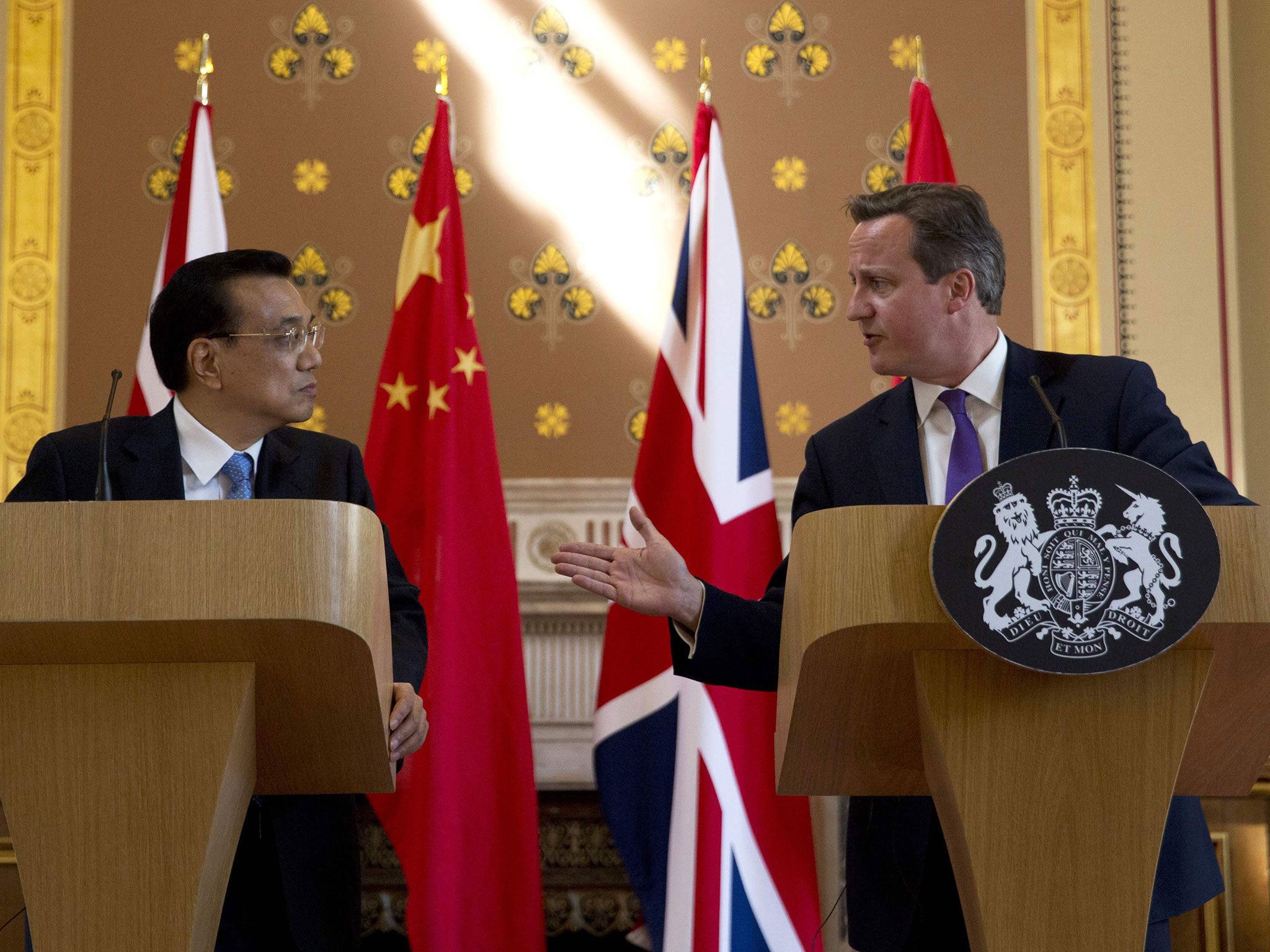David Cameron talks up China trade deals worth £14bn of gas, oil and HS2

Your support helps us to tell the story
From reproductive rights to climate change to Big Tech, The Independent is on the ground when the story is developing. Whether it's investigating the financials of Elon Musk's pro-Trump PAC or producing our latest documentary, 'The A Word', which shines a light on the American women fighting for reproductive rights, we know how important it is to parse out the facts from the messaging.
At such a critical moment in US history, we need reporters on the ground. Your donation allows us to keep sending journalists to speak to both sides of the story.
The Independent is trusted by Americans across the entire political spectrum. And unlike many other quality news outlets, we choose not to lock Americans out of our reporting and analysis with paywalls. We believe quality journalism should be available to everyone, paid for by those who can afford it.
Your support makes all the difference.British businesses have signed £14bn worth of trade deals with China as the UK attempted to position itself as the country’s major trading partner in Europe.
The Prime Minister, David Cameron, hailed the burgeoning trade links between the two countries during a visit by the Chinese leader Li Keqiang. He said UK companies were now exporting more than £1bn to China each month, more than double the amount exported in 2009.
“In the last few years we have made a huge difference and built a much stronger bilateral and trading relationship between our countries,“ he added. “The figures tell the story – bilateral trade at record levels, our exports to China up 15 per cent in 2013, they have more than doubled in the last five years and, at a billion a month, they are growing faster than France’s or Germany’s.”
The largest deal agreed between the two countries will see oil giant BP supply the China National Offshore Oil Company (Cnooc) with liquefied natural gas (LNG). The 20-year agreement is worth £12bn, according to the Department for Business, Innovation & Skills, and will see 1.5 million tons of LNG shipped annually to China from 2019.
BP’s chief executive, Robert Dudley, said: “This is a significant deal for BP and China but it also marks a step up in global connectivity in the gas market. This is important for all countries and regions looking at the diversity of energy supply and energy security – it gives BP greater flexibility to respond to the changing energy demands from Europe, Asia and other regions.”
Other agreements saw the Anglo-Dutch company Shell sign a global strategic alliance agreement with Cnooc to explore “co-operation opportunities”.
Lloyds Banking Group has also agreed a deal with the China Development Bank to help secure inward investment from China into the UK, in particular into infrastructure and energy projects such a HS2 and nuclear power.
The Business Secretary, Vince Cable, said: “There has been more investment into the UK from China in the last 18 months than in the previous 30 years.”
Woodside sell-off: Shell sells stake
Royal Dutch Shell has set out plans to slash its stake in Australian energy giant Woodside, collecting $5bn (£3bn) as part of the oil major’s plan to offload $15bn worth of businesses by the end of 2015.
Shell is selling 19 per cent of Woodside’s stock, to cut its stake in the company from more than 23 per cent to 4.5 per cent.
Shares in Woodside, which Shell tried to take over in 2001, hit a three-year high earlier this week.
The Australian government blocked the oil giant’s bid 13 years ago, and the company has been reducing its stake in the Woodside ever since.
Join our commenting forum
Join thought-provoking conversations, follow other Independent readers and see their replies
Comments